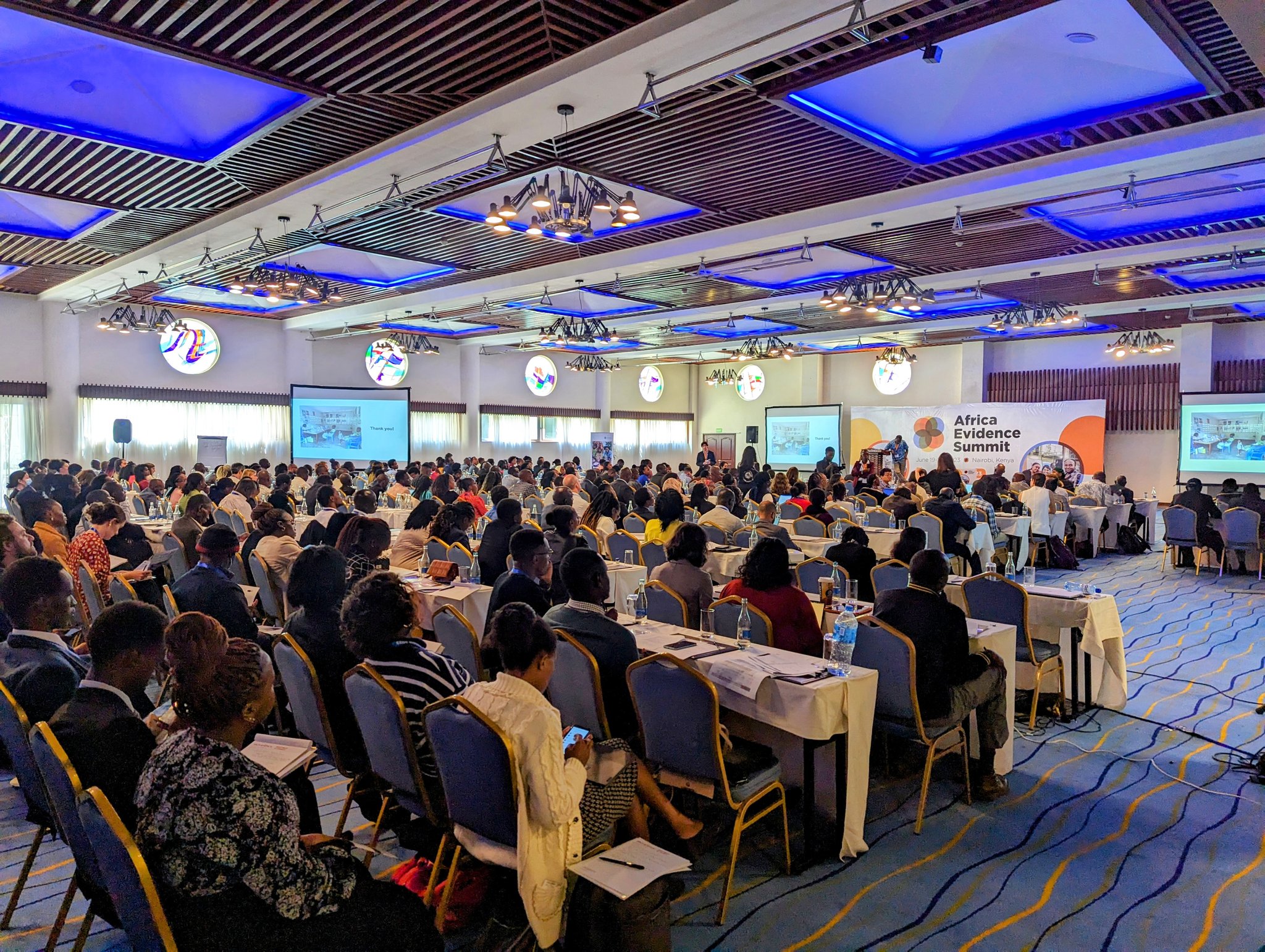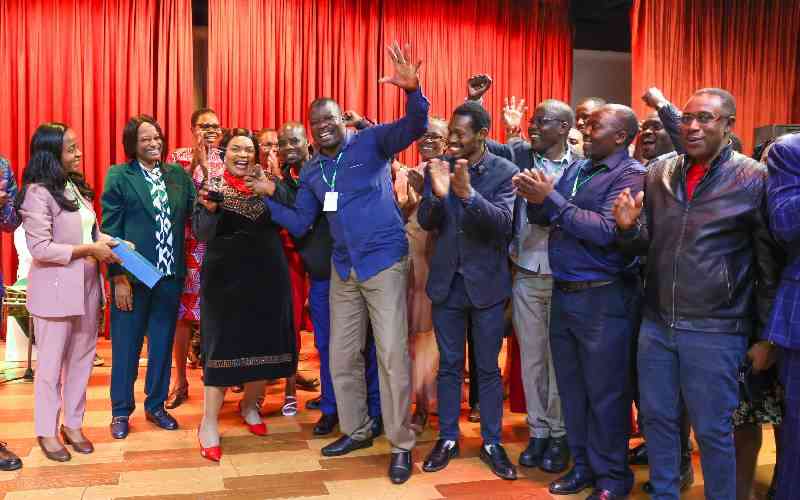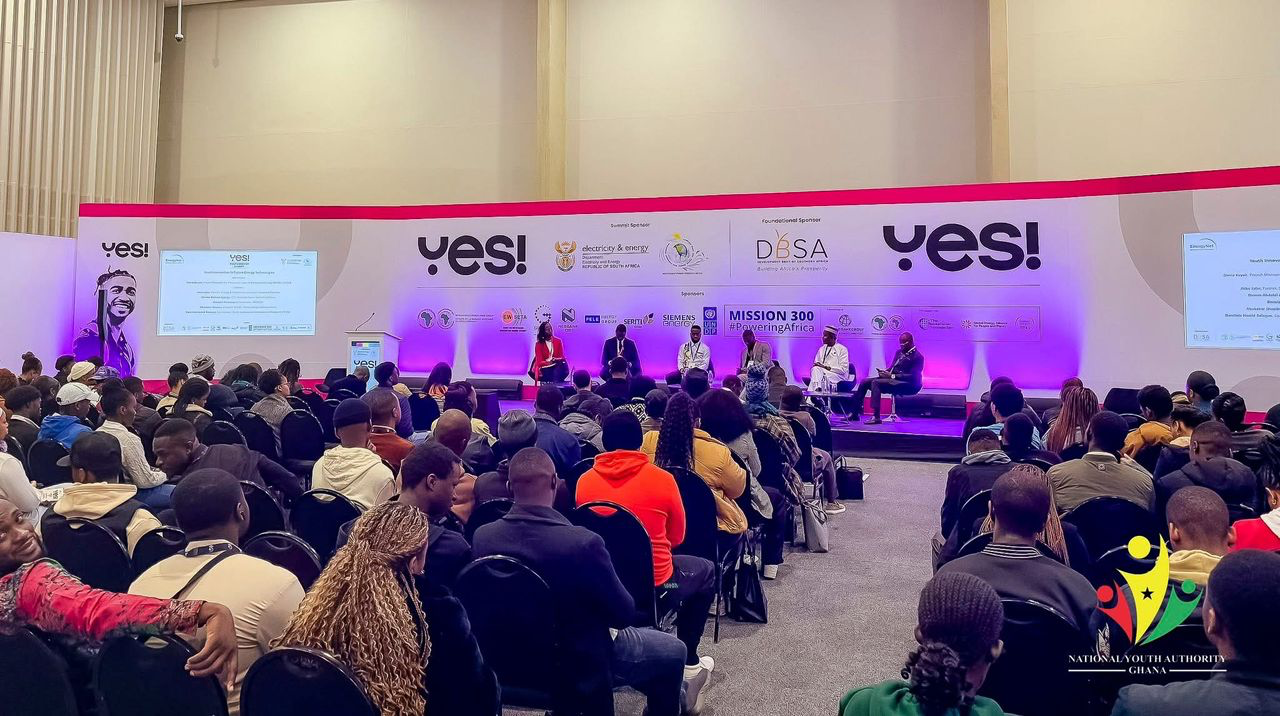African states challenged to use research, partnerships to fill aid funding cuts
 Delegates at the 13th Africa Evidence Summit in Nairobi on June 23, 2025
Delegates at the 13th Africa Evidence Summit in Nairobi on June 23, 2025African governments have been challenged to leverage research, partnerships, and work on cost-effective programmes to do more with less in the face of USAID termination and budget cuts.
Researchers and experts at the Africa Evidence Summit in Nairobi on Monday said the crisis brought about by the reduced foreign aid funds and budget cuts offers an opportunity to redesign new systems for health, data systems, and the place for evidence.
The Trump administration early this year terminated USAID, through which much of US foreign aid was being channeled.
The US was the largest global single aid donor, disbursing some $72 billion in assistance in 2023.
The cuts left Kenya with a Sh52 billion deficit in the 2024-25 financial year, according to Treasury CS John Mbadi.
Network of Impact Evaluation Researchers in Africa chairperson Prof Amos Njuguna noted that with funding cuts directly affected programming, one of the available solutions is to “get more with less”.
“We must try to draw maximum output. For instance, we have research on the impact of reducing measles vaccine from 10 to five doses, or, for example, instead of children getting five doses, they get three doses. This means that two of those doses can be saved.
“By 2029, the problem will even be extreme, because WHO is also cutting the funding,” Prof Njuguna said.
The USIU don added that to bridge the gaps, governments need to use evidence to inform decisions and strengthen institutions.
“If we strengthen institutions, especially in Africa, then you have a situation where you have African-driven solutions for African problems. For a long time, the problem we have had is trying to address research problems by using foreign or different approaches that don’t speak to the needs of the local communities,” he added.
Prof Dean Karlan, co-director at Global Poverty Research Hub, said even when aid was big, it was small compared to local governments’ budgets and local resources. And based on this, Prof Karlan said one of the leverages is in building evidence partnerships to help governments to spend their budgets in the best ways possible.
He called for research and evidence to ensure governments do more with whatever they have, regardless of whether times are tough or not.
“It is far more than anyone’s research or study. What we are learning as evidence of movement is the collection of it all and that’s how we will be able to move and learn from each other,” Karlan, former chief economist at USAID, added.
He noted that among the lessons they had learned at USAID is that they could do more by simplifying programmes and focusing.
“At the point that I left, we had shifted $1.7 billion into more effective programmes by using evidence from all around the world, and the lesson was always to simplify what we were doing, figure out core programmes and deliver them in scale”.
“But we also lack a lot of knowledge that we need to know about how to run programmes better and seeing that integrated in evaluations, especially when working with governments to figure out how to help them run better programmes,” he added.
Emilie Oftedal, senior adviser at the Norwegian Agency for Development Cooperation, said one of the approaches they are adopting amidst budget cuts pressures is getting more with what is available.
“It is about thinking carefully about how to spend the money that you have and secondly, how can you mobilize more capital and how can we use the funding that we have as leverage in various ways,” Oftedal told the summit.
African Population and Health Research Center executive director Catherine Kyobutungi noted that their new strategy is also doing more with less and building back better.
Additionally, she insisted on ensuring closer collaboration between the generators of evidence and the users.
“We need models that work, create relationships, and sustain them outside the constraints of restricted funding. Our question is not that there is a great scientist at Makerere University, for instance, but how do you connect that scientist with a decision maker in a way that is consistent and sustainable, and is there a framework that allows their evidence to be fed into a decision-making process? Kyobutungi said.
Centre for Effective Global Action Carson Christiano regretted the abrupt termination of USAID, which resultantly affected sensitive programmes in health, food security, and poverty reduction.
Christiano acknowledged there were many programmes that were doing important work such as the HIV treatment and medical studies that were providing solutions as well as food aid — lifesaving interventions.
She, however, challenged governments and other funders to take up frow where the USA left off.
“There is a website called Project Resource Optimisation that lists some of the programmes that could be restarted if another donor is willing to step in. So that's been a really important effort.
“But I think this is a real opportunity, as Catherine [Kyobutungi] said during the panel this morning, for countries to think about what their priorities are, to use evidence to guide them towards the most cost-effective interventions, and then to have governments start to pick up and to start to invest in longer-term and sustainable programmes,” she added.
The two-day 13th Africa Evidence Summit 2025 under the theme “Better Data for Decision-Making” is focussing on cost-effective, policy-relevant, transparent, and inclusive research.
It is co-hosted by the Center for Effective Global Action and the Network of Impact Evaluation Researchers in Africa.










